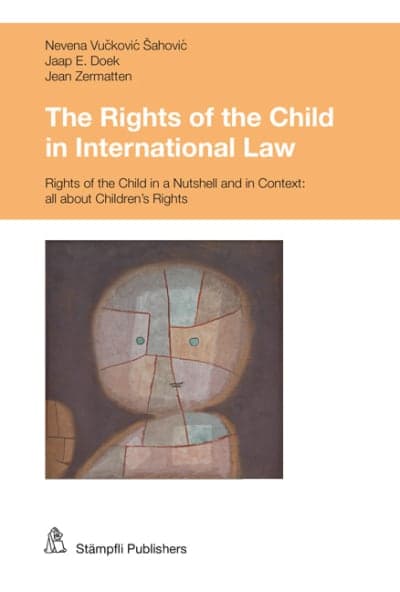
The Rights of the Child in International Law
Rights of the Child in a Nutshell and in Context: all about Children's Rights
At the turn of the 21st century, the international community became conscious of the existence of the child, not solely as a developing, dependent being in need of protection, but above all as a human being, bearer of rights. This resulted in the adoption of the Convention on the Rights of the Child (CRC 1989). This legally binding instrument, ratified by 193 States, has become the common language used when speaking of children anywhere in the world. The Convention was followed by 3 Optional Protocols. Fully realized, child rights form a real instrument that creates obligations for State parties to respect and ensure the rights enshrined in the CRC, but its application still remains weak in certain countries and there are pockets where children have no rights. There is also a general weakness in the training of professionals: it is the reason of this book, meant for the training of those who work with and for children, as well as for all undergraduate and postgraduate students, and for all those who show an interest in the topic. Ambition of the publication: in a practical and descriptive way, to provide all useful information pertaining to the CRC and its 3 Optional Protocols, and pertinent international instruments linked to children’s rights. The book also sets rights in their historical context and follows their rapid evolution, benefiting from the jurisprudence provided by the CRC Committee: it pays particular attention to all the actors who play a role in the implementation of the CRC, GOs and NGOs and to the implementation challenges the CRC is currently facing. It points out different approaches and provides bibliographic information. The wish of the authors is that this publication may permit all professionals to not only improve their knowledge, but also enrich their practices and determination to promote, apply and respect child rights.
November 2012, 420 Seiten, Paperback, 1. Auflage, Englisch
Stämpfli Verlag AG
9783727288494
Stämpfli Verlag AG
9783727288494

